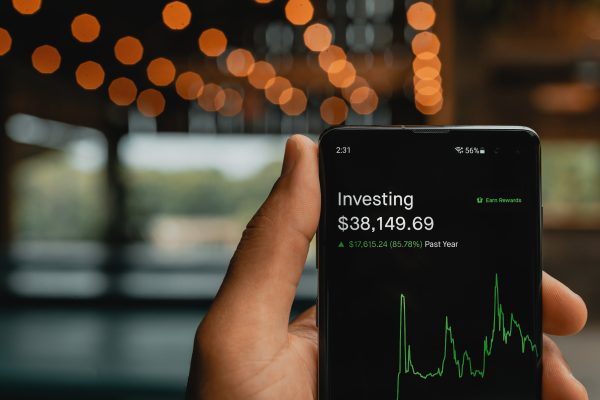
Stock Market Rally: What does it mean for your portfolio?
21 July 2023 6 min read

7 min read
Published:
Updated:

Mohsin Patel
Co-founder
Deliveroo, Uber, Netflix. These were all companies being run out of bedrooms at one point. They’ve had millions invested into them, and today they stand as some of the most important companies in modern society.
Startups are a crazy beast. In this article, I’m going to dig into what startup investing is all about. We’ve been startup investing for some years now so and wanted to share what we have learnt – as this is an asset class around which there is a surprising amount of mystique.
I’ll also be sharing the Islamic angle on startup investing and whether this is all sharia-compliant.
We’ve actually produced a groundbreaking startup course designed for potential angel investors who want to learn more. It’s free too. Check it out here.
In short, a startup is high-potential, scaleable company. They usually operate in markets that are ready to be disrupted. The classic example would be Uber and the taxi industry.
A startup is NOT simply a new business. A new business selling oranges on the high street is not a big, high-potential, scaleable company.
In a world where people find it hard to make good returns, startup investing offers the high-risk high-reward potential that many people crave.
That is why venture capital funds have been doing well in fundraising recently.
An early stage venture capital fund is a fund that invests in startups (£200k-£2m typically), usually once the company is a year or two old. Angel investors are individuals who invest earlier, typically between 0-4 years of a company’s age. All of these investors are looking for high growth companies with the potential to scale up to at least £100m companies. Due to these motives, startups that take such capital (fund capital in particular) are incentivised to grow quickly and get to that scale – as their investors ultimately want to cash out.
We recently caught up with Husayn Kassai, co-founder of Onfido. They’ve had the likes of Google and Microsoft invest in them. Running some quick numbers, it is very likely early investors in Onfido have made 500x returns. In real terms, that’s me or you putting in a cheeky 5 or 10 grand a few years ago and it now being worth £2,500,000 or £5,000,000.
There isn’t really an asset class that can get close to those returns. On top of that you can also get some great tax breaks on startup investing in the UK. This can mean that you can get 30-50% of your investment back as a tax break.
Fairly. That’s why the returns are so massively high if you do manage to hit on a successful one.
It’s certainly not something to be putting all your life savings into. The way we’ve approached it is to allocate the spare capital in our portfolio to startup investing (maximum around 20% of our overall portfolio). If we lose it, it’s not the end of the world. But if it works, it could propel our wealth significantly.
The way to properly invest in startups is to mitigate this risk by being very disciplined and investing a set amount every month (or every few months) so that you build up a basket of 10-20 startups over 2-3 years. The old adage “don’t put your eggs in one basket” applies particularly strongly to startup investing where you will almost certainly have a few companies fail in your portfolio.
Because startups are private companies, you can’t just easily pick off the best ones by just going on a stock exchange. But there’s a few ways to invest in startups.
Firstly though, what you should understand about the startup world is that the hottest startups are invested in off-market through private networks and the first you will hear of them is an announcement on Techcrunch or the Financial Times. It’s only if you’re connected to these networks that you know who the hot startups are, when they are raising investment, and if you are lucky you’ll get to invest in them.
Nonetheless, here are some ways you can begin startup investing:
Yes. In fact, it’s completely Islamic at its core. You’re combining capital with human endeavour for a share in the return.
There are a few things to watch out for though:
Beyond the actual potential financial gains we care deeply about impact.
Our view is that if we want the next tech billionaire to stem from the Muslim community, we need to be backing exceptional Muslim founders. Only when we create that ecosystem can that happen. Through the IFG Angel List that’s what we hope to bring about.
We don’t just invest in Muslim founders though. We invest in anything exceptional (as long as it is sharia-compliant) and impactful. We think that as if our angel list can access these high-quality deals with relatively small entry sizes, we’ll not only be propelling the wealth of the Muslim and BME community, we will also be bring our wealth to bear on some of the knottiest problems that are facting mankind (such as climate change) and so helping the lives of all.
We’ve actually produced a groundbreaking startup course designed for potential angel investors who want to learn more. It’s free too. Check it out here.
This article is part of our angel investing series. Check it out here.

21 July 2023 6 min read

15 February 2023 7 min read

10 January 2023 11 min read